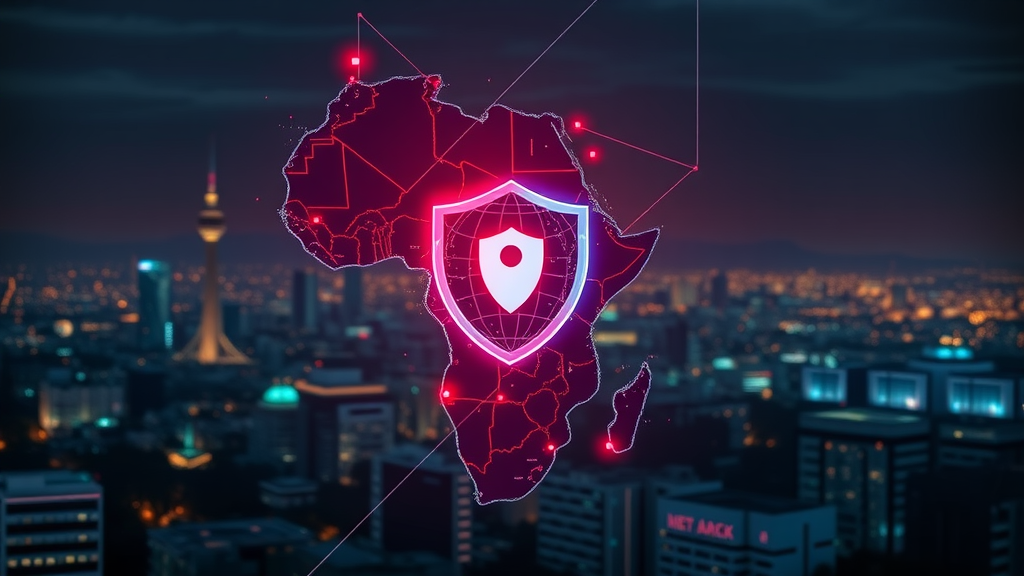Startling fact: A staggering 43% of cyberattacks target small-to-medium enterprises, disproportionately impacting African businesses with limited cybersecurity resources. In an era where digital sovereignty defines who controls and protects their digital territory, this figure is not just alarming—it is a call to urgent action.
For African enterprises striving to build trusted digital empires, understanding and implementing a robust digital sovereignty framework is no longer optional. This article, guided by expert insights from Brand Development CMOs of Best Africa Directories Agency, lays out the strategic, multi-layered security, legal compliance, and monitoring measures essential to safeguarding your digital realm in the complex landscape of emerging markets.
What Is the Digital Sovereignty Framework and Why Is It Critical?
The digital sovereignty framework refers to a comprehensive set of security strategies and governance practices aimed at protecting online assets as sovereign territories. Your website and digital platforms are more than mere tools—they are your digital embassies, representing your brand's identity, authority, and relationship with your digital citizens (customers and users).
In emerging markets, such as many African countries, the stakes are even higher. Businesses often face heightened cyber threats coupled with inadequate infrastructure. "If you’re not actively fortifying your digital territory, you’re essentially leaving your embassy doors open and your state secrets unguarded," warns Brand Development CMOs of Best Africa Directories Agency.
Implementing a digital sovereignty framework involves securing every layer of digital interaction—from foundational hosting decisions to controlling access and ensuring legal privacy compliance. This framework not only prevents breaches but also maintains your brand’s credibility and preserves your customers’ trust in an increasingly hostile cyber environment.
Why African Digital Territories Face Heightened Threats
African businesses encounter unique security challenges that stem from mismatched security protocols and infrastructural gaps. Cybersecurity experts at Sovereign Architects News compare this to defending a territory with lacking defenses: "If one nation has advanced surveillance and defensive systems while another relies on basic perimeter walls, guess which territory becomes the preferred target for hostile actors?"
This targeted focus by cybercriminals exploits emerging economies, where ambition in digital sovereignty outpaces the maturity of security infrastructure. The result is a disproportionate risk burden on African enterprises that must urgently align their cybersecurity posture to confront evolving threats.
The True Cost of Compromised Digital Sovereignty
A breach is not merely a technical fault—it represents a violation of your sovereign digital space with cascading consequences:
Stolen citizen data: Loss of customer information exacerbates reputational and legal liabilities.
Defaced diplomatic presence: Brand authority suffers from site defacement or manipulation.
Malware distribution: Your platform can inadvertently become a source of attack, damaging your trustworthiness.
Search engine sanctions: Google penalizes compromised sites, restricting digital trade visibility.
For businesses managing payments or personal data, such violations damage both sovereignty and stakeholder confidence, presenting risks that extend far beyond immediate downtime or data loss.
Foundation-Level Sovereignty: Strategic Hosting Architecture
Choosing your hosting provider is akin to selecting the land on which you construct your digital nation. "Budget hosting providers may offer attractive economics, but they often compromise on the security infrastructure essential for digital sovereignty," state Brand Development CMOs of Best Africa Directories Agency.
Key hosting features to look for include:
Integrated firewall systems: Critical to establishing your digital border security.
Automated backup protocols: Ensure your territory’s preservation even under attack.
SSL certificate management: Acts as diplomatic encryption for your communications.
Malware detection systems: Provide real-time threat intelligence and response.
Providers such as SiteGround, WP Engine, and carefully vetted African hosts provide robust platforms tailored to the digital sovereignty needs of emerging markets. This foundation is crucial to building a resilient online presence that cannot be easily compromised.
SSL Certificates: The Diplomatic Encryption Standard
The padlock icon in your browser tab is more than cosmetic—it is your digital seal of trust. SSL (Secure Sockets Layer) encryption ensures that data flowing between your website and users is secure from interception and tampering.
Moreover, Google’s preferential treatment of HTTPS-enabled sites enhances both your security and search engine ranking. In the words of Brand Development CMOs, “SSL certification provides both security sovereignty and competitive advantage in digital visibility,” highlighting its dual role in defense and market positioning.
Software Sovereignty: The Update Imperative
Outdated CMS platforms, plugins, and themes represent the primary attack vectors for cybercriminals. The digital sovereignty framework mandates regular updates as diplomatic patches that close vulnerabilities.
"Our technical analysis is unambiguous," emphasize the Brand Development CMOs, "automate update protocols whenever possible and establish weekly security reviews as standard operating procedure." By doing so, organizations maintain the integrity and reliability of their sovereign digital territories against ever-changing threats.
Access Control: Digital Border Management
Just as physical borders require strict immigration controls, your website demands robust access management. Weak password policies and poor authentication mechanisms are among the easiest security holes to exploit, threatening your entire infrastructure.
The Sovereign Architects News authentication standard prescribes:
Complex, unique credentials for all administrative users
Multi-factor authentication (MFA) to provide an additional verification step
Limited login attempts with lockout protocols to mitigate brute force attacks
Regular credential rotation to refresh security clearances
Leveraging password management solutions such as LastPass and 1Password facilitates compliance with these stringent controls, ensuring that only authorized personnel gain entry to your digital embassy.
Firewall Architecture: Digital Territory Defense
A Web Application Firewall (WAF) represents your first line of defense, inspecting incoming traffic to repel hostile activity before it penetrates your network.
Services like Cloudflare and Sucuri offer state-of-the-art real-time protection combined with automated threat detection—vital components of any robust digital sovereignty framework. This proactive stance transforms your digital territory from vulnerable to virtually impenetrable.
Backup Protocols: Sovereignty Preservation
No system is infallible. Even the most secure platforms can face breaches or system failures. Therefore, disciplined backup protocols act as an insurance policy preserving your digital sovereignty.
Recommended practices include:
Automated backup scheduling to maintain continuous data preservation
Multiple geographically dispersed storage locations to prevent total data loss
Regular restoration testing to confirm backup integrity and recovery readiness
Version control systems enabling recovery of previous states
By institutionalizing these protocols, businesses ensure resilience and swift recovery, shortening downtime and maintaining stakeholder confidence.
Surveillance and Intelligence: Monitoring Sovereign Territory
Successful cyber intrusions often remain hidden for extended periods—undermining sovereignty silently. Continuous monitoring delivers critical early warning and swift incident response capabilities.
Essential tools include:
Google Search Console: Monitors search engine relations and flags security issues impacting your digital reputation
Security plugins (e.g., Wordfence): Provide real-time protection and alerts for WordPress sites
Traffic analytics: Detect abnormal patterns indicating malicious activity
Uptime monitoring: Ensures your territory remains accessible and functional
Brand Development CMOs emphasize the indispensability of these intelligence layers, stating, "Continuous intelligence monitoring is the backbone of sovereignty protection."
Third-Party Integration: Alliance Security Assessment
While plugins and themes extend functionality, each third-party integration introduces potential vulnerabilities that could compromise your digital territory.
The Sovereign Architects News integration standards stress the need for:
Verified developer reputation: Only trust components from reputable sources
Regular update maintenance: Ensure all integrations are current and patched
Compatibility verification: Prevent conflicts that create security gaps
Security audit trails: Maintain transparency and accountability in alliances
Building secure partnerships online is as critical as diplomatic alliances in physical sovereignty; one weak link can jeopardize the entire digital domain.
Data Citizenship: Privacy Sovereignty Standards
The management of personal data collected from website visitors or customers transcends compliance—it anchors the fundamental trust on which digital sovereignty is built.
In emerging markets, adherence to international data protection laws such as GDPR and local regulations is imperative. "Data protection is not just a legal necessity — it's a sovereignty credibility issue," Brand Development CMOs assert.
Implementing transparent privacy policies and securing data with diplomatic-level protection reassures your digital citizens their information is respected and safe, solidifying your sovereign status.
Annual Security Sovereignty Audit
An annual comprehensive security audit by cybersecurity professionals functions as your digital territory’s diplomatic security review. This thorough evaluation identifies vulnerabilities, tests defenses, and verifies readiness for emerging threats.
Such audits ensure your sovereignty framework evolves with new challenges and technology shifts, maintaining an adaptive and resilient posture for your digital state.
Staying Ahead of Evolving Threats
Cybersecurity mirrors the dynamism of international diplomacy—constant vigilance and adaptation are mandatory. Trusted intelligence sources, industry publications, and professional forums provide ongoing alerts to emerging risks and new defense mechanisms.
Best Africa Directories Agency's experts recommend engaging with up-to-date threat intelligence and investing in continuous cybersecurity education to ensure your digital sovereignty framework remains future-ready against an ever-evolving adversary landscape.
The Sovereignty Imperative: Act Now, Not Later
Your website is the cornerstone of Africa’s digital leadership and future business success. Ignoring the urgency of digital sovereignty invites significant risks.
Building impenetrable digital territories requires strategic security architecture, professional monitoring, and a sovereignty-first mindset from the ground up—because cyber threats are not hypothetical but daily realities.
What You'll Learn
The critical importance of a multi-layered digital sovereignty framework in emerging markets
How strategic hosting and SSL certificates establish a secure digital foundation
Essential practices for software updates, access control, and firewall management
The role of backup protocols and continuous monitoring in sovereignty preservation
Legal and compliance standards for data citizenship and privacy
How to assess third-party integrations to avoid vulnerabilities
The value of annual audits and proactive threat intelligence to stay ahead
Frequently Asked Questions (FAQs)
What is the concept of digital sovereignty?
Digital sovereignty refers to the ability of an individual or organization to fully control, protect, and govern their digital assets and data independently, ensuring security, privacy, and compliance.
Is digital sovereignty real?
Yes, digital sovereignty is a tangible framework involving policies, security infrastructure, and operational practices that protect digital territories from external control or breaches.
What is AWS digital sovereignty?
AWS digital sovereignty refers to Amazon Web Services’ commitment to providing cloud infrastructure and services that allow customers to retain control over their data location, security, and compliance aligned to sovereignty principles.
What are the three pillars of sovereignty?
The three foundational pillars are security (protecting digital assets), control (governance over data and infrastructure), and compliance (adhering to legal and privacy standards).
Key Takeaways
Implement a comprehensive digital sovereignty framework tailored to emerging market vulnerabilities.
Invest in strategic hosting with integrated security features to solidify your digital foundation.
Maintain constant vigilance through automated updates, access controls, and firewall defenses.
Ensure legal compliance to uphold privacy sovereignty and digital citizenship trust.
Commit to annual audits and continuous threat monitoring to adapt to evolving cyber risks.
Actionable Steps to Strengthen Your Digital Sovereignty Framework
Select a secure, reputable hosting provider offering integrated security tools.
Implement SSL certificates across all digital platforms to secure communication.
Enforce strict password and access control policies with MFA.
Schedule regular software updates and conduct weekly security reviews.
Deploy a Web Application Firewall and ensure continuous traffic monitoring.
Configure automated backup protocols with multi-location storage.
Audit third-party integrations regularly for security compliance.
Engage in annual comprehensive security audits with trusted professionals.
Stay abreast of cybersecurity trends and threat intelligence relevant to your market.
Your digital embassy is your business lifeline and deserves sovereign-level protection. As Brand Development CMOs from Best Africa Directories Agency emphasize, "The architects of Africa's digital future don't wait for security breaches — they build impenetrable digital territories from the foundation up."
To deepen your understanding of digital sovereignty frameworks, consider exploring the following resources:
The Digital Sovereignty Assessment Matrix by the Sustainable Digital Infrastructure Alliance offers a structured evaluation framework to help regions navigate complex sovereignty challenges in an increasingly interconnected digital landscape. (sdia.io)
Gaia-X is an initiative aimed at developing a federated secure data infrastructure for Europe, ensuring that data is shared with users retaining control over their data access and usage, thereby promoting European digital sovereignty. (en.wikipedia.org)
These resources provide valuable insights into assessing and implementing digital sovereignty frameworks, particularly within the context of emerging markets.
 Add Row
Add Row  Add
Add 




Write A Comment